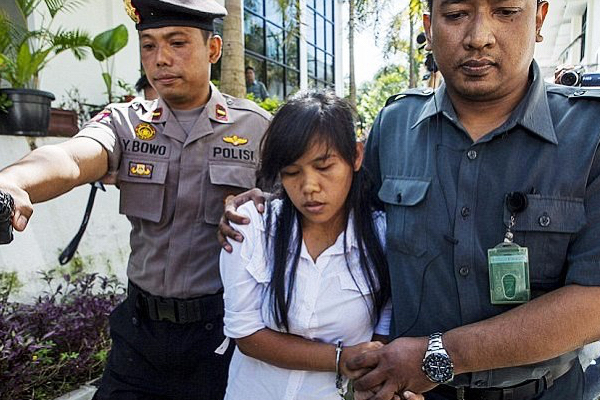
May 19, 2015 | News
In a letter sent this week, the ICJ urged President Joko Widodo to grant Mary Jane Veloso, a Filipino national on death row in Indonesia, a permanent reprieve from execution and to impose a moratorium on executions, with a view of abolishing death penalty in the near future.
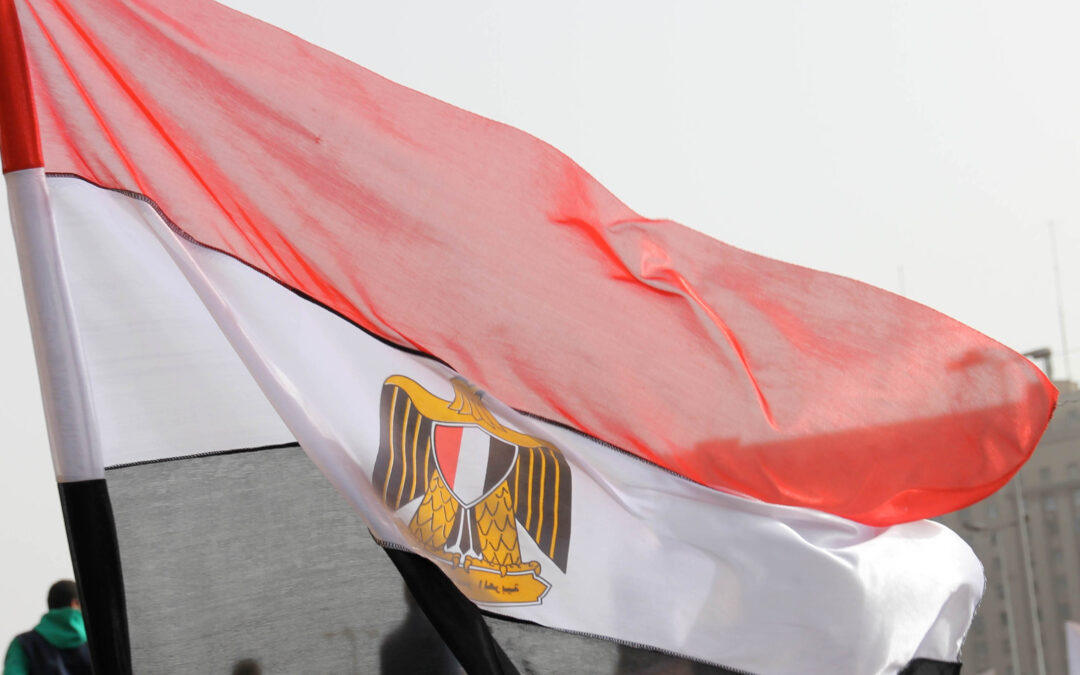
May 18, 2015 | News
The ICJ condemns ongoing egregious human rights violations, including the right to life by the Egyptian authorities and facilitated by unfair judicial proceedings.
Yesterday, six men were executed following their conviction in an unfair trial by a military court and confirmation of the death sentences by the President of the Republic, Abdel Fatah Sissi, on 24 March 2015.
The men were part of a group of nine individuals accused of participating in attacks on security services and killing two officers of the armed forces on 19 March 2014.
Their conviction through military proceedings violated their right to a fair trial by a competent, independent and impartial tribunal.
Military court judges in Egypt are appointed by the Minister of Defense and are subject to military discipline procedures. By the very constitution of this court, in addition to by the manner in which the trial procedures were conducted, the defendants were denied the right to a fair trial under international standards.
All of the accused alleged that they had been subjected to torture and other ill treatment, as a result of which one of them was reported to have suffered a broken thigh and fractured knee.
Rights of defence were undermined, including the ability to have confidential access to a lawyer.
Furthermore, three of the accused were reportedly already in detention at the time the attacks they were convicted of participating in took place.
The executions came just a day after the decision on 16 May by the Cairo Criminal Court to recommend deaths sentences for more than 120 accused persons, including former President Morsi.
The cases have been referred to the mufti, the highest official religious authority in Egypt for confirmation.
This decision relates to two separate cases in which the accused, including Mohamed Morsi and other senior officials from the Muslim Brotherhood, were convicted of numerous charges.
These include, “murder”, “carrying out acts that compromise the independence of the country”, “abduction of police officers”, “collusion with a foreign organization to carry out terrorist activities in Egypt” and “carrying heavy weapons to resist the Egyptian state”.
The criminal proceedings that led to Saturday’s verdict follow grossly unfair trials.
The ICJ considers that in the trial and sentencing the defendants, the Egyptian authorities have acted in breach of Egypt’s obligations under international human rights law, including those relating to the right to life, the prohibition of torture and other cruel, inhuman or degrading treatment or punishment, and fair trial rights.
Many of the accused were denied access to counsel during detention, with some of them held incommunicado for months. Mohamed Morsi’s whereabouts were unknown from 3 July 2013 to November 2013.
The accused’s defence rights were largely undermined, including by curtailing the right to call and examine witnesses.
Further, during the entirety of the proceedings, prosecutors failed to provide substantial and credible evidence to support the charges against the accused, relying heavily on police and intelligence reports.
Reviewing numerous judgments issued in the context of similar mass trials resulting in death sentences, the ICJ has found a systematic failure of the courts to establish the individual guilt of each accused based on credible evidence.
Saturday’s judgment appears to continue this trend.
Further, under Egyptian law, decisions of felonies courts are not subject to appeal.
They can only be challenged before the Cassation Court, which does not look at the merits of the case but rather only the proper application of the law by lower courts.
“The imposition and execution of death sentences following such grossly unfair trials amount to a summary execution, a serious crime under international law,” said Said Benarbia, Director of the ICJ Middle East and North Africa programme.”
“Rather than contributing to serious human rights violations, Egyptian judges should preserve the dignity of their office and act in defence of the rule of law and human rights, not as a tool of repression,” he added.
The ICJ opposes the use of the death penalty in all circumstances as a violation of the right to life and a form of cruel, inhuman and degrading punishment.
The African Commission on Human and Peoples’ Rights has called on Egypt recently to refrain from carrying out the death penalty as it amounts to a violation of the right to life.
The UN General Assembly has repeatedly, by a large majority, called for a moratorium on its use.
Contact:
Alice Goodenough, Legal Adviser of the ICJ Middle East and North Africa Programme, t: +44 7815 570 834, e: alice.goodenough(a)icj.org
Nader Diab, Associate Legal Adviser of the ICJ Middle East and North Africa Programme, t: +41 229 793 804, e: nader.diab(a)icj.org
Egypt-Executions and mass death sentences-News-Press releases-2015-ARA (press release in Arabic, PDF)
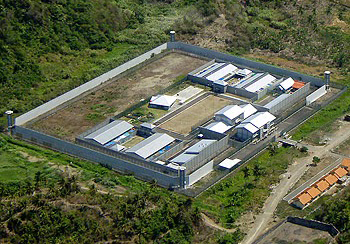
Apr 27, 2015 | News
The ICJ urged the Government of Indonesia today to stop the imminent execution of nine persons convicted of drug-related offenses.
The ICJ emphasized that the death penalty constitutes a denial of the right to life and freedom from cruel, inhuman, or degrading punishment.
Emerlynne Gil, ICJ’s Senior Legal Advisor, said: “The government is trying to send the message that it is forcefully cracking down on crime, especially on drug-related offenses. Extinguishing the lives of nine people will almost certainly not serve to reduce crime, but it will clearly subvert human rights and the rule of law.”
Recent studies have called into question the notion of any meaningful deterrent effect of capital punishment on the commission of crimes, the ICJ says.
“Indonesia, by imposing the death penalty on those convicted in drugs related cases, is violating its obligations under the International Covenant on Civil and Political Rights,” Gil added.
Indonesia is a State Party to the ICCPR, having acceded to it in 2006.
The ICJ opposes capital punishment in all cases without exception.
In line with the plea by the UN General Assembly in repeated resolutions, the ICJ calls on the Government of Indonesia, as a first step, to establish a moratorium with a view of abolishing the death penalty in the near future.
Background
Nine persons are scheduled to be executed in the next few days: Myuran Sukumaran (Australia), Andrew Chan (Australia), Mary Jane Veloso (Philippines), Rodrigo Gularte (Brazil), Sylvester Obiekwe Nwolise (Nigeria), Okwudili Oyatanze (Nigeria), Martin Anderson (Ghana), Zainal Abidin (Indonesia), and Rahem Agbaje (Nigeria).
Last month, the UN Human Rights Committee strongly criticized Indonesia for its failure to respond to the Committee’s call in 2013 to stop executing prisoners for drug-related crimes.
After a regular review of Indonesia’s human rights record, the Committee in August 2013 urged the State to reinstate the de facto moratorium on the death penalty and to ensure that, if capital punishment was maintained, it was only for the most serious crimes, which do not include drug-related offences.
In December 2014, the UN General Assembly adopted a resolution, for the fifth time since 2007, emphasizing that that the use of the death penalty undermines human dignity and calling on those countries that maintain the death penalty to establish a moratorium on its use with a view to its abolition. A majority of 117 UN Member States voted in favor of a worldwide moratorium on executions as a step towards abolition of the death penalty, with only 37 opposed.
Contact:
Emerlynne Gil, ICJ Senior Legal Adviser, in Bangkok, t: +66840923575, e: emerlynne.gil(a)icj.org
Photo: aerial view of a prison on Nusakambangang, the island where the executions take place.
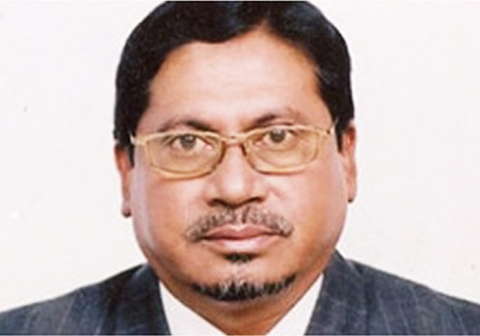
Apr 11, 2015 | News
The ICJ today condemned the execution of Muhammad Kamaruzzaman following an unfair trial. The ICJ repeated its call for the authorities in Bangladesh to institute an immediate moratorium on executions with a view to abolishing the death penalty in the country.
Muhammad Kamaruzzaman (photo), a senior leader of the Jamaat-e-Islami party, was hanged today in Dhaka Central jail.
He had been sentenced to death by the Bangladesh International Crimes Tribunal (ICT) in 2013 for his role in the atrocities committed during the 1971 war for independence in Bangladesh.
His conviction and sentence were confirmed on appeal in 2014.
The government established the ICT in 2010, after amending the International Crimes (Tribunals) Act 1973.
The ICT has jurisdiction to try crimes against humanity, crimes against peace, genocide, violations of the Geneva conventions and any other crimes under international law.
The ICJ has previously raised concerns that trials before the ICT do not comply with international standards for fair trials.
According to the ICJ, there are serious procedural flaws at all stages: pre-trial release has been routinely and arbitrarily denied; witnesses have been abducted and intimidated; and there have been credible allegations of collusion between the Government, prosecutors and judges.
“This execution constitutes a violation of the right to life and freedom from cruel, inhuman and degrading punishment,” said Sam Zarifi, the ICJ’s Director for Asia and the Pacific. “The fact that this execution was based on a trial that was procedurally and substantively flawed is all the more regrettable and a perversion of justice.”
On 6 April 2015, the Supreme Court rejected Muhammad Kamaruzzaman’s petition for a review of his sentence.
The UN High Commissioner for Human Rights has denounced the death sentence, noting that his review petition was summarily rejected without consideration on merits.
Government officials have reported that Muhammad Kamaruzzaman decided to not seek a presidential pardon for his sentence, following the rejection of his review petition.
After Abdul Qader Mollah in 2013, Kamaruzzaman is the second individual to be executed after being sentenced to death by the ICT.
“The ICJ supports the rights of all victims of the atrocities committed during the 1971 war for independence in Bangladesh to truth and justice. But the death penalty is not the answer,” Zarifi added. “Bangladesh should impose an official moratorium on the death penalty, with a view to abolishing it outright.”
The ICJ opposes capital punishment in all cases without exception. The death penalty constitutes a violation of the right to life and the right not to be subjected to cruel, inhuman or degrading punishment.
In December 2014, the UN General Assembly adopted a resolution, for the fifth time since 2007, emphasizing that that the use of the death penalty undermines human dignity and calling on those countries that maintain the death penalty to establish a moratorium on its use with a view to its abolition.
A majority of 117 UN Member States voted in favor of a worldwide moratorium on executions as a step towards abolition of the death penalty, with only 37 opposed.
Contact:
Sam Zarifi, ICJ Asia Pacific Regional Director (Bangkok), t: +66 807819002; email: sam.zarifi(a)icj.org
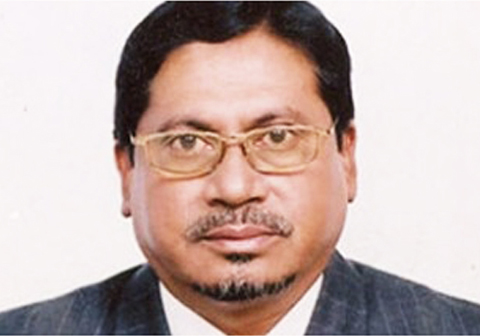
Apr 7, 2015 | News
Bangladesh President Abdul Hamid should intervene to stay the imminent execution of Muhammad Kamaruzzaman, a senior leader of the Jamaat-e-Islami party, said the ICJ today.
Kamaruzzaman was sentenced to death by the International Crimes Tribunal (ICT) in 2013 after an unfair trial, the ICJ says.
On Monday, 6 April 2015, the Bangladesh Supreme Court rejected Kamaruzzaman’s last-ditch petition for independent review of the sentence – he was claiming discrepancies in prosecution witness testimony during the trial – paving the way for his imminent execution.
“The ICJ has long supported the right of victims to seek truth and justice for the atrocities committed in the 1971 war to gain Bangladesh’s independence, but the death penalty, especially after a trial with procedural and substantive flaws, perpetuates the cycle of violence and is a perversion of justice,” said Sam Zarifi, the ICJ’s Director for Asia and the Pacific.
The ICJ has previously raised concerns that the ICT does not comply with international standards for fair trials.
Following the Supreme Court’s rejection of his review petition, Kamaruzzaman must now decide whether to seek clemency from the President, as the last resort.
The ICJ opposes capital punishment in all cases without exception.
The death penalty constitutes a violation of the right to life and the right not to be subjected to cruel, inhuman or degrading punishment.
“The death penalty is not justice and is the ultimate form of cruel and inhuman punishment,” Zarifi said. “Especially where the death penalty is concerned, the trial process has to meet the highest standards of fairness and due process, but this case falls far short of that.”
The ICJ calls on Bangladesh to impose an official moratorium on the death penalty, with a view to abolishing the death penalty outright.
Contact:
Sam Zarifi, ICJ Asia Pacific Regional Director (Bangkok), t: +66 807819002; email: sam.zarifi(a)icj.org
Background:
In May 2013, the ICT found Kamaruzzaman guilty of mass killing during the 1971 Liberation War and sentenced him to death.
In November 2014, the Supreme Court issued a judgment on appeal upholding Kamaruzzaman’s conviction and death sentence.
In December 2014, the UN General Assembly adopted a resolution, for the fifth time since 2007, emphasizing that the use of the death penalty undermines human dignity and calling on those countries that maintain the death penalty to establish a moratorium on its use with a view towards its abolition.
117 UN Member States, a clear majority, voted in favor of a worldwide moratorium on executions as a step towards abolition of the death penalty.









